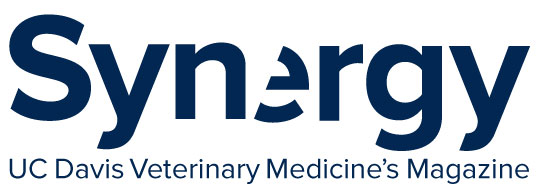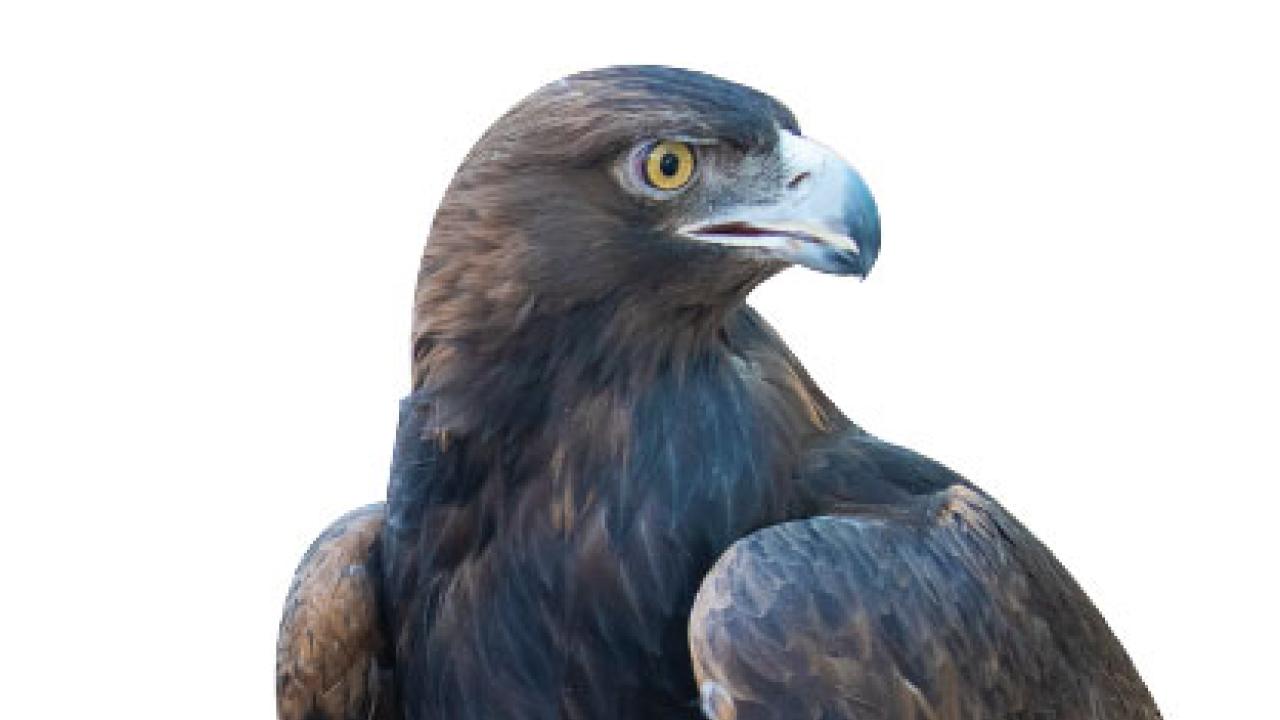
News Bites
News Bites

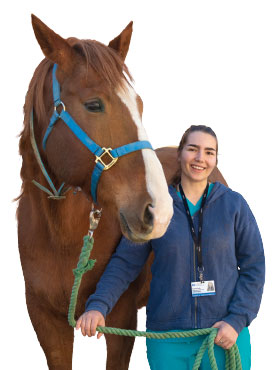 UC Davis Tops World Rankings
UC Davis Tops World Rankings
UC Davis reclaimed the #1 spot in veterinary sciences in the latest QS World University Rankings released in March. QS, or Quacquarelli Symonds, is considered one of the most influential international university rankings providers.
The veterinary school, also ranked #1 by U.S. News and World Report, is home to a robust research program with more than $78 million in annual research funding. Its hospital treats nearly 60,000 patients each year and offers the nation’s largest veterinarian residency program with more than 30 specialties.
"We are very proud to be ranked #1 in the QS World University Rankings in veterinary science,” said Dean Michael Lairmore. “The rankings are a testimony to the excellence of our people and programs that strive every day to advance the health of animals, humans, and the environment."
 USAID Awards $85M for new OHI Grant
USAID Awards $85M for new OHI Grant
Getting ahead of complex emerging health threats—from zoonotic disease to antimicrobial resistance—requires a large-scale, multidisciplinary network of health professionals technically trained in disease prevention, detection and response.
To address these needs and advance global health security, USAID awarded the One Health Institute and consortium partners up to $85 million over five years to implement the One Health Workforce—Next Generation project. The project supports One Health University Networks in Africa and Southeast Asia to build sustainable training systems and strengthen workforce capacity for effective disease surveillance and control.
 Healthy Dogs Sought for Cancer Vaccine Study
Healthy Dogs Sought for Cancer Vaccine Study
The Veterinary Center for Clinical Trials is one of three national participants in the Vaccination Against Canine Cancer Study (VACCS trial), the largest clinical trial conducted to date for canine cancer. The goal of the VACCS trial is to evaluate a new vaccine strategy for the prevention—rather than treatment—of cancer in dogs. If successful, this study could also provide important justification for eventually looking at a similar approach in humans. The VACCS trial is just one of 76 current studies underway for a variety of animal species on issues ranging from cardiology and internal medicine to ophthalmology and neurology. For more information on the VACCS trial and others, please visit studypages.com/ucdavisvet.
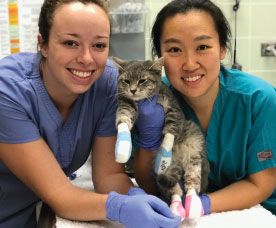 Cats Exposed to Wildfires Develop Cardiac Disease
Cats Exposed to Wildfires Develop Cardiac Disease
UC Davis veterinary cardiologists and critical care specialists discovered that cats who suffered burns and smoke inhalation in recent California wildfires also had a high incidence of heart problems. Researchers studied 51 cats referred for treatment after the 2017 Tubbs Fire in Santa Rosa and the 2018 Camp Fire in Paradise. Echocardiograms, or heart ultrasounds, found the cats had significant cardiovascular effects, including a much higher incidence of heart muscle thickening and blood clot formation. Their research represents the first published research to come from UC Davis on feline victims of California wildfires.
Hospital Opens New Feline Suite
The veterinary hospital completely remodeled a patient ward to create a new Feline Treatment and Housing Suite as part of building a comprehensive Veterinary Medical Center. Advantages of the revamped space include: increased dedicated space for feline care, soundproofing to decrease stress associated with nearby dogs, in-ward treatment space to decrease patient transport and stress, and increased efficiency for technical staff and students as they care for hospitalized cats. This new suite will prove to be a valuable asset as the hospital cares for burn victims during wildfires, the majority of which are cats.
 Wildfire Care from CA to Australia
Wildfire Care from CA to Australia
Drs. Jamie Peyton and Eric Johnson visited Australia in February to lend their expertise in treating animals injured in their devastating wildfires. Peyton developed an innovative method of using tilapia fish skin as biological bandages for burned animals during California wildfires. The skins reduce pain and can be left on for several days. Future emergency response efforts will likely depend on continued collaborations to share knowledge, find solutions and strengthen international support systems.
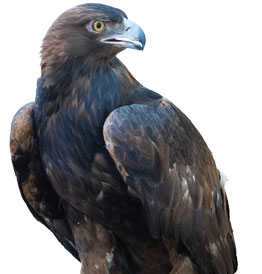 Raptors Draw a Crowd on Biodiversity Museum Day
Raptors Draw a Crowd on Biodiversity Museum Day
The California Raptor Center (CRC) was one of thirteen UC Davis-campus collections featured during the 2020 Biodiversity Museum Day celebration in February. CRC volunteers brought education ambassador raptors out on the glove, offering visitors a unique close-up viewing experience where they could also learn about the role of raptors in California’s ecosystems. In its ninth year, this free UC Davis event is an opportunity to show community members a sampling of our world’s amazing biodiversity, on a local and global level.
